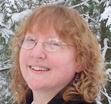Breaking Out Useful Examples
[image error]Donald Maass started writing advice to writers back in the mid-1990s. He's a published novelist (under a pseudonym) and has a successful career as a literary agent, so I think he has a good background to draw on. Tens of thousands of writers slave away hour after hour trying to write the best novel they possibly can. Mr. Maass asked himself: of those novels that find publication, why do so many of them fall flat in the market? He offers some insights into this in his books, and in my opinion he does one thing better than many others who give writing advice: he uses novels as examples.
Other authors who write about how to write use movies as examples. There's nothing wrong with using movies as examples except that using ONLY movies as examples doesn't ever really get at the heart of good writing. A movie and a novel are two very different mediums for storytelling. Using movies as examples can be a good starting point for discussing several important topics in writing. After all, movies have plots, characters, conflict, scenes, settings, and beginnings, middles, and endings, just like novels do. However, using only movies as examples can cause you to fall into the trap of using screenwriting techniques and terms. Some of these translate well and apply to novels, while others do not. A good screenplay is based on the dramatic elements of timing and visual input. A good novel is based on the dramatic elements of subjective detail and complexity driven by personal imagination.
Novels do not have the luxury of presenting information to the reader on their own fixed time frame. Readers can pick up and put down novels at any point in the story. Yes, I realize you can walk out of a movie and you can hit pause and replay on the DVD player, but typically you do not. Besides, not many read an entire novel in one sitting. As an author, spending time learning techniques of timing such as beats and visual drama that do not translate well into prose makes your novel's success dependent on dialogue and dramatic action. This works for some novels. But very few of these are breakout novels. Breakout novels offer something more than just snappy dialogue and lots of action. They present profound messages that can be interpreted and explored on many levels.
The differences between novels and movies are obvious when a novel gets made into a movie. Certain scenes that work well in the novel do not translate well into the visual format of a movie and novel scenes often have to be pumped up and dramatized to really work in a visual setting. The reverse is also difficult, making a novel out of a movie because it's hard work to develop the words to capture the deeper meanings of the visual action. That's what most authors who use movies as examples are asking you to do. If you are struggling to write a novel, why would you want to make the task that much harder by using only movies as examples?
Mr. Maass's techniques go deeply into the vehicle of prose and its unique qualities. Using modern breakout novels, not the classics that might be a stretch for budding writers, he uncovers the essence of what makes a novel break out: a novel world that feels so real you don't want to leave, characters so memorable you wouldn't be surprised to meet them in person, and a passionate, complex message that will change your reader's way of viewing the world.
Even if you haven't read the novels he refers to (he provides excerpts) you can understand the explanations he gives and try out the writing techniques that could work for you at this point in your career. The techniques also come in several formats to help you make the most of your time.

Join me this coming year for an exciting and worthwhile journey into the breakout novel world. I'm teaching Maass's Breakout Novel Series in 4 Parts: Character Development, Plot Development, Story Techniques and Pitching, and Advanced Breakout Techniques. I have a limited number of Writing the Breakout Novel books and Writing the Breakout Novel Workbooks. If you comment on this post before December 25th, I'll be randomly drawing names to give them away.
Click here to learn more about the Maass workshops I'm teaching at Savvy Authors.
Click here to learn more about all my upcoming workshops.
Happy Holidays!



